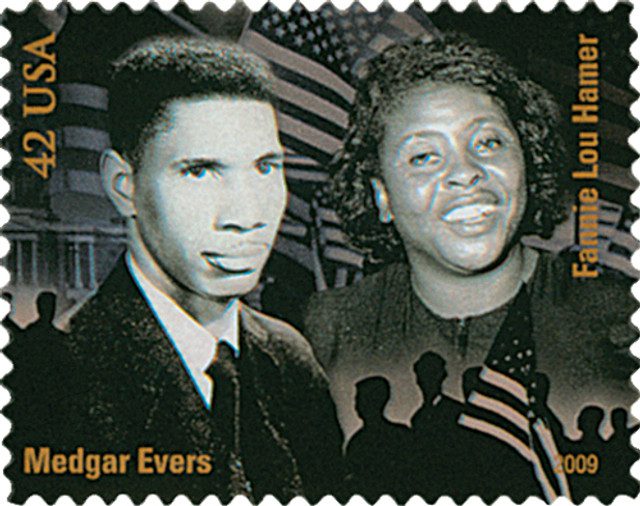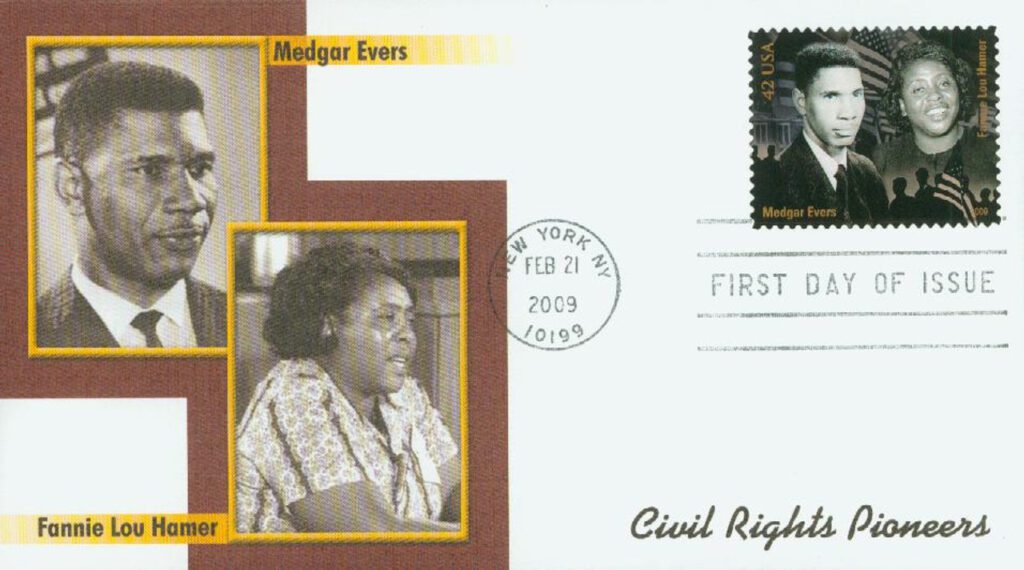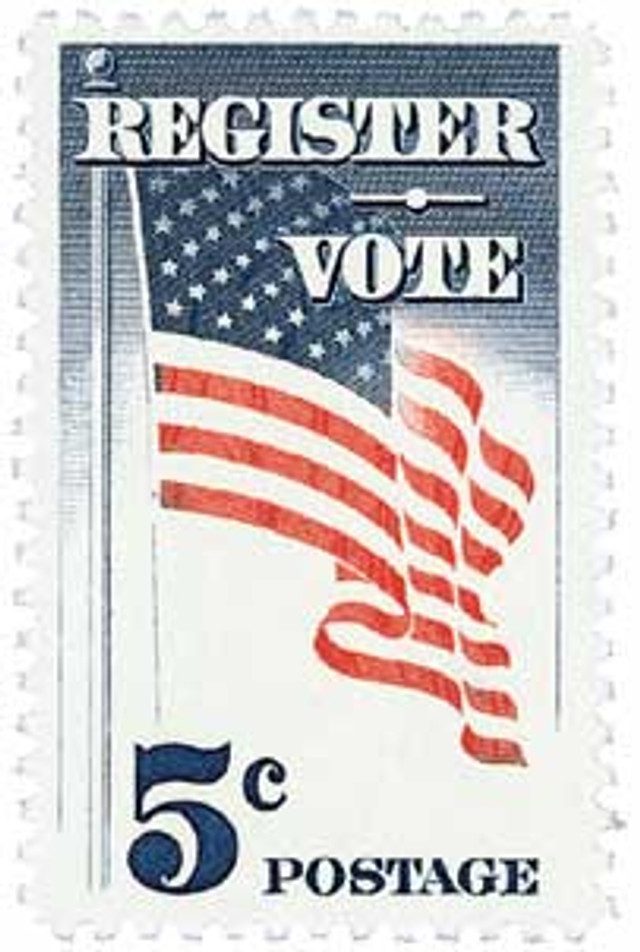Fannie Lou Hamer was born on October 6, 1917, in Montgomery County, Mississippi. The youngest of 20 children in a family of sharecroppers, Hamer grew up in poverty but would later rise to become one of the most important voices of the civil rights movement. With her powerful speeches, unshakable courage, and belief in equality, she helped transform the struggle for voting rights in the United States.
Hamer’s early life was shaped by hardship. Her parents, Ella and James Townsend, worked tirelessly on cotton plantations, and from the age of six, Fannie Lou joined them in the fields. Education was limited for Black children in the rural South, and by the age of 12 she had left school to work full-time to help support her family. Despite these obstacles, Hamer developed a sharp mind, a strong work ethic, and deep faith, which would guide her throughout her life.
For many years, Hamer worked as a timekeeper on a plantation, recording hours and wages for workers. In 1944 she married Perry “Pap” Hamer, and the couple remained together for the rest of her life. They were unable to have biological children due to a devastating incident of forced sterilization. While undergoing a procedure to remove a uterine tumor, the white doctor performed a hysterectomy without her consent—a practice common in Mississippi at the time, particularly against Black women. This violation of her rights deeply shaped her determination to fight injustice.
Hamer’s involvement in the civil rights movement began in 1962, when she attended a meeting organized by the Student Nonviolent Coordinating Committee (SNCC). At this meeting, she learned that Black citizens had the legal right to register to vote—something she had never known before. At the age of 44, she became one of the first people in her community to attempt voter registration. In Mississippi, however, the barriers to Black voting were immense. Literacy tests, poll taxes, intimidation, and violence were used to keep African Americans away from the polls.
When Hamer traveled with 17 others to register, she was immediately targeted. She lost her job on the plantation, and her family faced threats and harassment. Yet these hardships did not discourage her. Instead, they strengthened her resolve. She became a field secretary for SNCC, traveling across Mississippi to encourage others to register to vote. She risked her life daily, often facing death threats and physical danger, but her commitment never wavered.
In 1963, Hamer’s activism led to one of the darkest episodes of her life. After attending a training session in South Carolina, she and other activists were arrested and brutally beaten in a Mississippi jail. The injuries she suffered left her with permanent kidney damage and a limp. Still, she refused to be silenced. Speaking later about the attack, she famously said, “I’m sick and tired of being sick and tired.” That phrase became one of the rallying cries of the civil rights movement.
Hamer gained national attention in 1964 during the Democratic National Convention in Atlantic City, New Jersey. She was a founding member of the Mississippi Freedom Democratic Party (MFDP), created to challenge the all-white delegation that represented Mississippi. At the convention, Hamer delivered a televised speech describing the violence and oppression faced by Black voters in the South. Her testimony was so powerful that President Lyndon B. Johnson called an emergency press conference to divert media coverage. Despite his efforts, her words reached millions of Americans and exposed the harsh realities of racial injustice.

Although the MFDP’s bid for recognition at the convention was unsuccessful, Hamer’s voice left a lasting impression. She continued to work for social change, advocating for better housing, healthcare, and education in Mississippi. In 1969, she founded the Freedom Farm Cooperative, an organization that helped poor Black families grow food and gain economic independence.
Fannie Lou Hamer passed away in 1977 at the age of 59, but her legacy endures. She is remembered as a fearless advocate for civil rights, whose plain-spoken honesty and moral conviction inspired countless people. Through her efforts, she helped pave the way for the Voting Rights Act of 1965 and for greater participation of African Americans in American democracy.
| FREE printable This Day in History album pages Download a PDF of today’s article. Get a binder or other supplies to create your This Day in History album. |
Discover what else happened on This Day in History.






IF MISSIPPI DISAPPEARED TODAY, ONLY THE DEVIL WOULD MISS IT!!